Author of 16 cricket titles, Kersi, receives another from the Queen
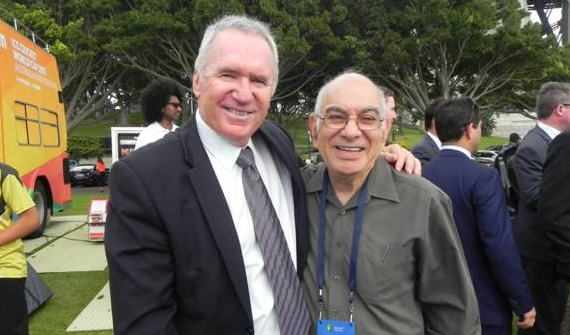
By Vijay Badhwar
The first thing anyone will say about Kersi Meher-Homji, who has received Order of Australia Medal (OAM) this month on Queen’s Birthday, is that Kersi is a true gentleman, humble and even self-effacing.
For The Indian Down Under family of which Kersi has been a central (cricket) player as its Sports Editor, right from the newspaper’s humble beginning some 35 years ago in 1987, it is indeed a proud moment. There may not be many in the Indian community more deserving of this medal than Kersi Meher-Homji.
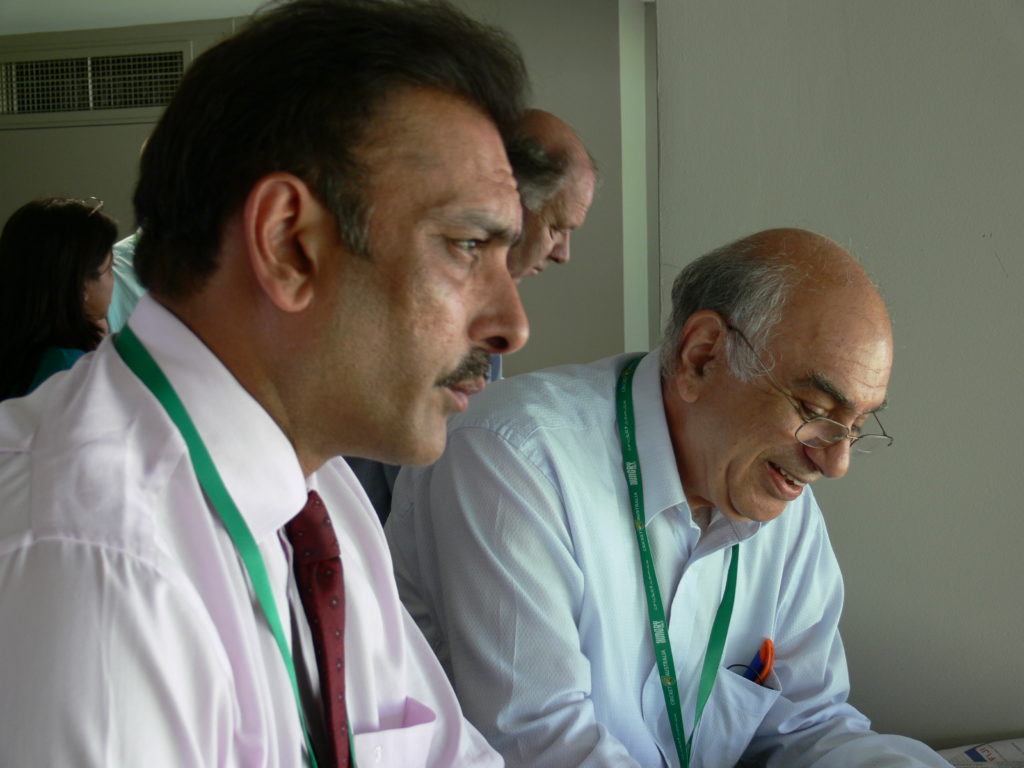
The Indian Down Under had meagre means at the beginning. Kersi, when approached, was excited, least interested in monetary benefits. He would spend significant amounts of time while working full time as a virologist. He has such dedication that once he wrote his column from hospital bed after going through a major heart surgery.
He has been a prominent cricket writer/statistician of international repute, contributing to Sports columns in Indian magazines before migrating to Australia, then writing for Cricket Australia Magazine and Sydney Morning Herald (SMH).
Kersi has personal chemistry, especially with Indian and Australian cricketers that has added to his depth of writing as a columnist. In the days when computers were non-existent, his sharp memory of numbers as a statistician was valued by media throughout the cricketing world. His views were sought on radio and television by the broadcasters during cricket seasons.
Kersi comes from a scientific background, hence bringing into his writing acute analysis that is logical, rational and unopinionated. Indian cricketers of the past, Sunil Gavaskar, Gundappa Vishwanath, Ravi Shastri and the like used to treat Kersi like a family. Australian cricketers, Waugh brothers and Allan Border used to open up in interviews with Kersi, giving rare insights for The Indian Down Under readers. His book ‘The Waugh Twins’ was a popular addition to cricket personalities and an instant success when it was published in 1998, and reprinted due to popular demand a year later.
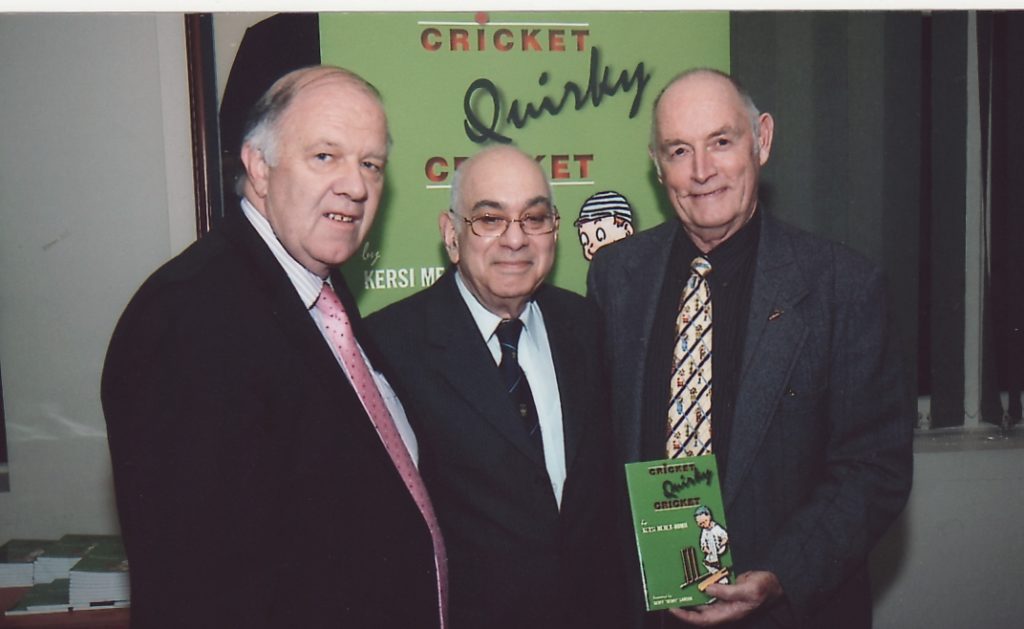
Kersi is the author of sixteen cricket books, his latest on cricketing history between India and Australia since 1948. He has contributed humour articles, short stories and interviews of singers in the Indian community and his columns on Sports and Cricket coverage made The Indian Down Under a popular newspaper for all these 35 years.
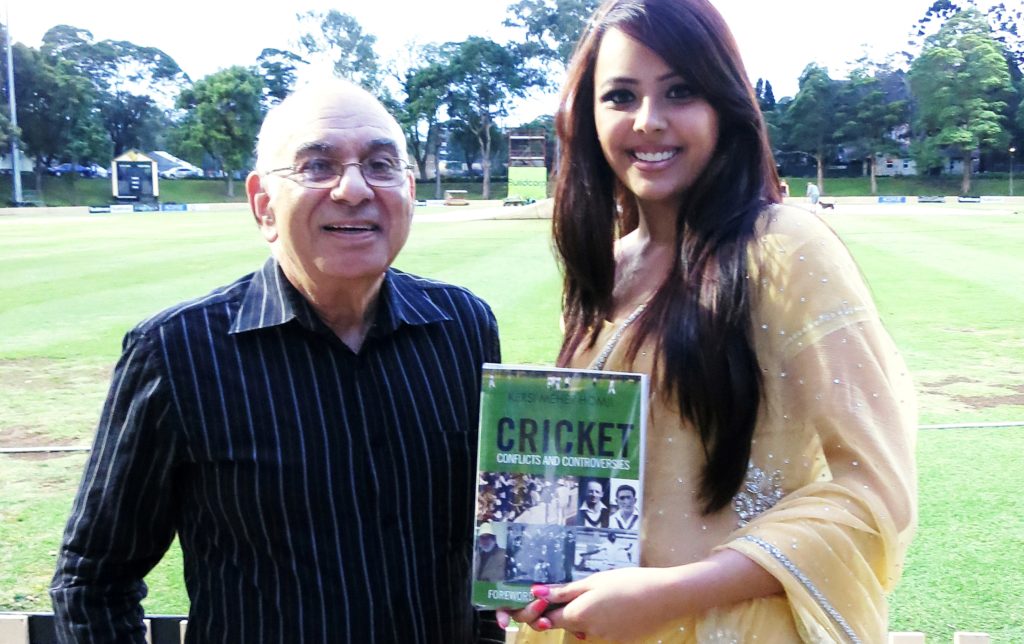
Kersi comes from a tiny Zoroastrian community, which he recognised in a book form: ‘Parsee Cricket Centenary – 1886 to 1986’ for the community’s contribution to cricket.
Kersi’s foremost love is cricket but also the Zoroastrian community he represents. He was an active member on the Australian Zoroastrian Management Committee for more than a decade starting from1970. He edited the community’s newsletter ‘Manashni’ for several years and worked hard towards development of the Australian Zoroastrian Community Centre. The Centre now flourishes with community functions throughout the year, Sunday Schools and festivals.
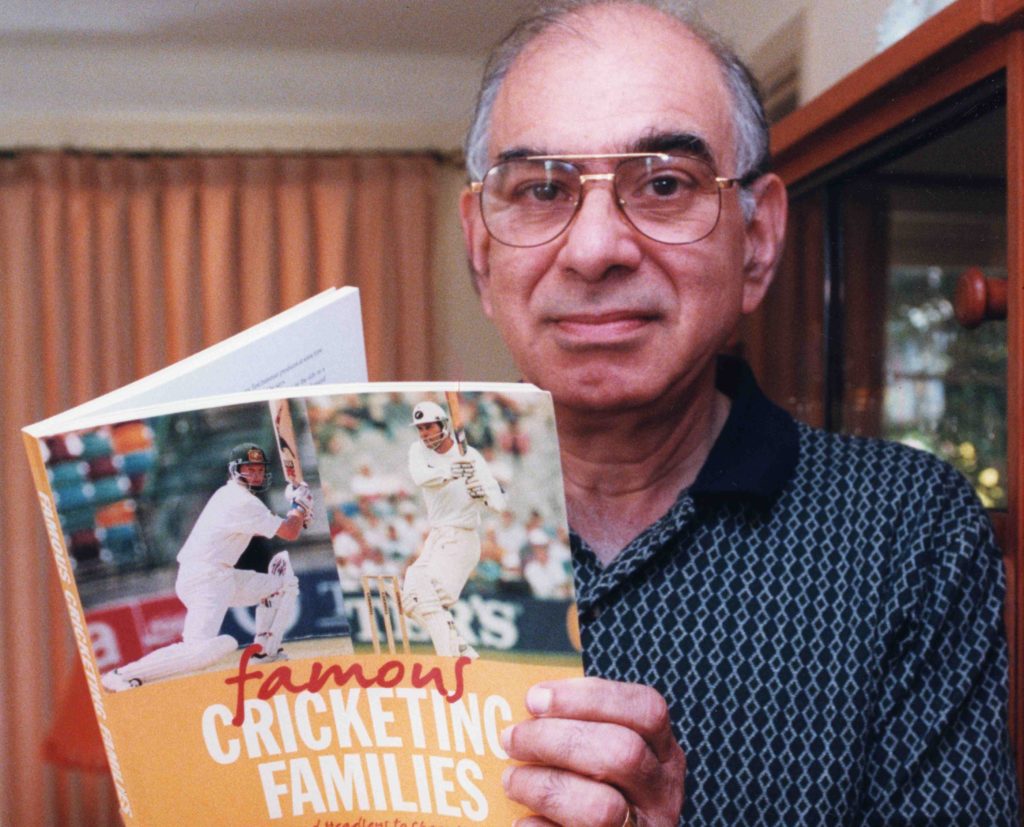
Kersi was honoured as ‘Zoroastrian of the Year’ in 1986. Bhartiya Vidya Bhavan in Australia also honoured Kersi in 2009 for Lifetime Contribution to Science and Cricket Literature and again awarded Kersi in 2014 for his contribution to Sports Literature and Community Unity.
Kersi has written for Indian publications, The Times of India, The Illustrated Weekly of India, Sport Week, Sports World, the Wisden Cricket Monthly among scores of publications throughout the world. He has been described by The Sydney Morning Herald as a ‘legendary statistician’.
Kersi Meher-Homji is a virologist (poliomyelitis and related viruses) by profession. His research work on smallpox and HIV viruses at School of Public Health and Tropical Medicine, Sydney University and Australia Red Cross Blood Transfusion Service resulted in many publications in reputed scientific journals.
Following is Kersi’s conversation with TIDU after the honours were announced.
TIDU: Kersi Meher-Homji OAM, with a title. How does it feel?
KMH: Ecstatic! It feels great. I still can’t believe it. I always wrote for the love of it. To be honoured as an OAM feels fantastic. Hope it inspires me to write better.
TIDU: For us, at The Indian Down Under, it’s like a family member being honoured. How does the family at home feel.
KMH: My wife Villie, sons Jehangir and Zubin and their wives are equally delighted. In fact it was Jehangir who was after me to apply for an Australian Award. I hesitated but he insisted and I started reluctantly looking for referees and with little hope. But, here it is.
TIDU: How did your love for cricket start. And how was the journey until this honour.
KMH: Cricket is in my family. My uncle, Kharshed, played one Test for India at Manchester in 1936 as a wicket-keeper. My grand uncle Rustom toured England in 1911. I am told he was a very stylish batsman. My eldest brother Behram played for Bombay University and Surat Pentangulars. But after he became a medical practitioner, he had to give up playing cricket. I was a mediocre cricketer myself but was inspired to write having read Ray Robinson and Peter Roebuck of Australia and KN Prabhu of India. I added a touch of humour after reading British humourist PG Wodehouse who occasionally also wrote stories involving golf and cricket. My journey of cricket writing is smooth, contributing to major publications like The Times of India, The Illustrated Weekly of India, Sportsweek, The Sydney Morning Herald, The Indian Down Under, Mid-Day, Parsiana and many cricket magazines Australian Cricket, World of Cricket among many others. I have also written 16 books on cricket Cricket’s Great Families, Out for A Duck, Nervous 90s, Six Appeal, The Waugh Twins, From Bradman to Kohli… Forewords for my books have been written by Test greats Sunil Gavaskar, Richie Benaud, Alan Davidson, Doug Walters, Allan Border, Michael Slater…
TIDU: With so many forms of cricket – Test, one-dayers, T20, what’s your most favourite.
KMH: I like all forms of cricket but Test cricket is still my favourite – especially between India and Australia.
TIDU: Can you envisage more forms appearing.
KMH: Yes; 10 Ten, 6 six, 100 balls…
TIDU: Are you still active with the Zoroastrian association. Since the inception of its community centre, in which you were involved some 35 years ago, how’s it going.
KMH: Yes, in a way. I attend all meetings and help when asked. I am on the sports sub-committee for over 40 years, organising cricket matches and table tennis tournaments. I occasionally still write for the community newsletter Manashni (meaning good thoughts). In the past, I had edited almost 100 editions of Manashni.
TIDU: Any more books to add to your mammoth 16 titles.
KMH: Not at the moment, but who knows an idea for a new book may spring anytime!
TIDU: Your most favourite book?
KMH: Favourite among my favourite book! All. One’s first book is always your most favourite, So it is Cricket’s Great Families.
TIDU: How do you feel being respected and recognised for your love of cricket and devotion to community work in Australia.
KMH: I am extremely satisfied that Australia has recognised my hard work. More than satisfied. THRILLED!
TIDU: Any interesting anecdotes from your books?
KMH: Many. It will fill up an entire new book! I try to make my books full of stories besides statistics.
TIDU: Any advice to the Indian community as Australian citizens.
KMH: Advice? As an Aussie citizen realise how happy you are in this country. If you work hard, really really hard, you will be rewarded.
Short URL: https://indiandownunder.com.au/?p=18005
